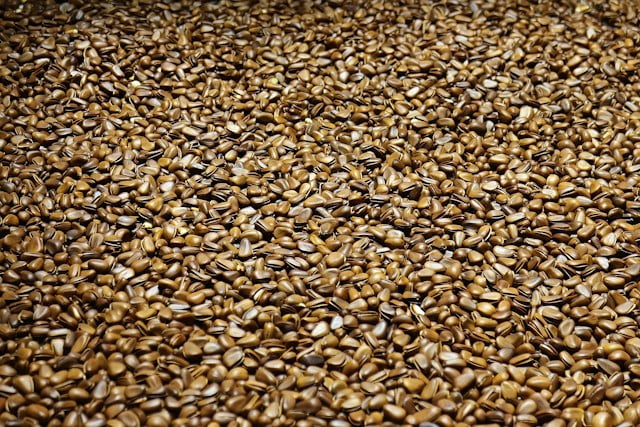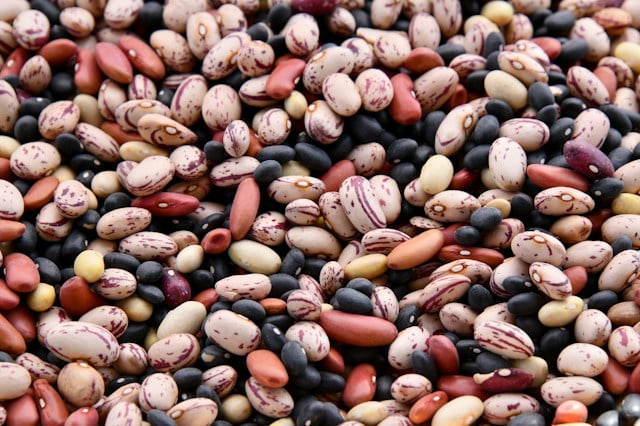For those looking for a wholesome and sustainable eating plan, the Mediterranean Diet has garnered a lot of praise for its possible health advantages. This diet, which has its roots in the customary eating habits of nations that surround the Mediterranean Sea, is distinguished by its profusion of fruits, vegetables, whole grains, legumes, and olive oil. It also calls for limiting intake of sweets and red meat and consuming fish, chicken, and dairy products in moderation. The diet stresses a comprehensive lifestyle approach that includes frequent physical exercise and a social setting during meals, in addition to specific food consumption guidelines.

The Mediterranean diet has become more and more well-known in recent years as a successful weight-loss strategy. Many things contribute to its growing popularity, such as its varied and tasty food alternatives, adaptability, and potential for long-term weight management. A lot of people believe that following a Mediterranean diet is a fun and practical approach to reach and stay at a healthy weight.
Essential Elements of a Mediterranean Diet
A. Prioritising complete, unprocessed foods:
Fruits and vegetables in abundance: The diet promotes consuming a lot of seasonal, fresh fruits and vegetables, which are rich in antioxidants, vitamins, and minerals.

Whole grains are a staple because they are higher in fibre and nutrients than refined grains. Examples of whole grains are barley, brown rice, quinoa, and whole wheat.

B. Good fats as the foundation:
The advantages of olive oil: Extra virgin olive oil in particular is essential. It has anti-inflammatory and heart-healthy qualities due to its abundance in antioxidants and monounsaturated fats.
Nuts and seeds inclusion: Rich in numerous nutrients and beneficial fats including omega-3 fatty acids, almonds, walnuts, and flaxseeds

C. Slim proteins from a range of origins:
Fish and seafood: Eating fish regularly, particularly fatty fish like mackerel and salmon, gives you omega-3 fatty acids, which are good for your heart.
Lean protein sources such as chicken, beans, lentils, and legumes are rich in nutrients and have a lower saturated fat content than certain other protein sources.
The Mediterranean Diet’s advantages
Heart Health: A lower risk of heart disease has been associated with the Mediterranean diet. It places a strong emphasis on eating a diet rich in fruits, vegetables, whole grains, nuts, and other heart-healthy fats like olive oil. These foods also support cardiovascular health.
Weight management: Research indicates that eating a Mediterranean-style diet may help control weight and lower the chance of obesity. The emphasis on whole, nutrient-dense diets provide vital nutrients while assisting with calorie control.
Cancer Prevention: According to some study, there may be a correlation between a Mediterranean diet and a decreased risk of developing some cancers, namely colorectal and breast cancer. The preventive impact of a diet rich in antioxidants, fibre, and phytochemicals may be attributed to their abundance.
Diabetes Management and Prevention: Studies have demonstrated that following this diet can assist those who already have the disease better regulate their blood sugar levels. Improved glycemic control may result from placing more focus on fruits, vegetables, beans, whole grains, and legumes.
Enhanced Cognitive Function: Research links the Mediterranean Diet to a decreased risk of neurodegenerative illnesses including Alzheimer’s and cognitive decline. Antioxidants from fruits and vegetables, olive oil, and seafood may all contribute to the preservation of brain health.
Anti-Inflammatory Properties: The anti-inflammatory properties of the foods in the Mediterranean diet can aid in the body’s reduction of inflammation. Prolonged inflammation is linked to a number of health issues, such as heart disease and several types of cancer.
Longevity: According to certain research, following the Mediterranean diet is associated with a longer lifespan. Longevity and general well-being are enhanced by a healthy lifestyle that includes a varied and balanced diet.
Better Gut Health: The diet promotes a healthy gut flora by placing a strong focus on foods high in fibre, such as fruits, vegetables, and whole grains. Improved immunological and digestive systems are only two of the many health advantages linked to a varied and well-balanced microbiome.
Heart-Healthy Fats: Including omega-3 fatty acids from fish and monounsaturated fats from sources like olive oil helps to create a better lipid profile, which lowers the risk of cardiovascular disease.

How Can a Mediterranean Diet Be Started?
Know the Fundamentals: – The Mediterranean diet places a strong emphasis on whole, minimally processed foods.
A range of fruits, vegetables, whole grains, legumes, nuts, seeds, and olive oil are all included.
– Dairy, eggs, and chicken should be taken in moderation, whereas fish and seafood are key sources of protein.

Make Gradual Adjustments: – Avoid making drastic dietary changes all at once. Make manageable adjustments to improve your chances of long-term success.
– Increase the amount of fruits and vegetables in your meals to begin with.
Select Whole Grains: Refined grains should be avoided in favour of whole grains such as oats, brown rice, quinoa, and whole wheat.
Incorporate Good Fats: – Your main source of fat should be olive oil. It has several health advantages and is high in monounsaturated fats.
– Eat some nuts and seeds as a snack; they are excellent providers of beneficial fats.
Consume More Fish:
– Try to consume fatty fish at least twice a week, such as sardines, mackerel, and salmon. Their omega-3 fatty acid content is high.
Include Legumes: – Increase the amount of beans, lentils, and chickpeas in your diet. They are great providers of fibre and protein.

Consume Dairy in Moderation: Limit your dairy consumption to Greek yoghurt and tiny amounts of cheese.
Herbs and Spices: – Use herbs and spices to add flavour to your food rather than salt to cut down on sodium.
Savour Fruits as Dessert: – Use fresh fruits to quench your sweet craving instead of candies and pastries.
Maintain Hydration: – Sip copious amounts of water all day long. Moderate use of red wine is also typical of the Mediterranean diet.
Arrange Well-Balanced Meals:
– Try to get the right amounts of healthy fats, proteins, and carbs at each meal.
Meal Prep: If you have a hectic schedule, it will be simpler to follow the Mediterranean diet if you plan and prepare your meals in advance.
Summary
the Mediterranean Diet provides a wealth of health advantages that go beyond simple dietary intake, making it a shining example of holistic wellbeing. This dietary strategy, which has its roots in the gastronomic traditions of the Mediterranean region, emphasises a wide variety of foods that are high in nutrients and also encompasses a more comprehensive way of living. It supports weight control, cardiovascular health, and a lower risk of chronic illnesses because of its emphasis on whole, unprocessed foods, healthy fats, and lean proteins, all of which are in line with current nutritional knowledge.
Furthermore, the potential of the Mediterranean Diet to improve overall quality of life is highlighted by its reputation for supporting enhanced gut health, lifespan, and cognitive function.
The secret is to embrace the Mediterranean Diet’s principles gradually and sustainably as people set out to follow it. Long-lasting improvements can be facilitated by making little, gradual adjustments to diet, such as increasing the amount of fruits, vegetables, whole grains, and heart-healthy fats. People who follow this dietary pattern not only fuel their bodies but also develop a sustainable and pleasurable eating habit by choosing carefully and relishing the variety of flavours.
You may also like:
Paleo diet: Everything You Need To Know
Kid-Approved Immunity Boosters: Fun & Easy Recipes They’ll Actually Eat
Conquer Chronic Back Pain: Expert Tips for a Healthier Spine

